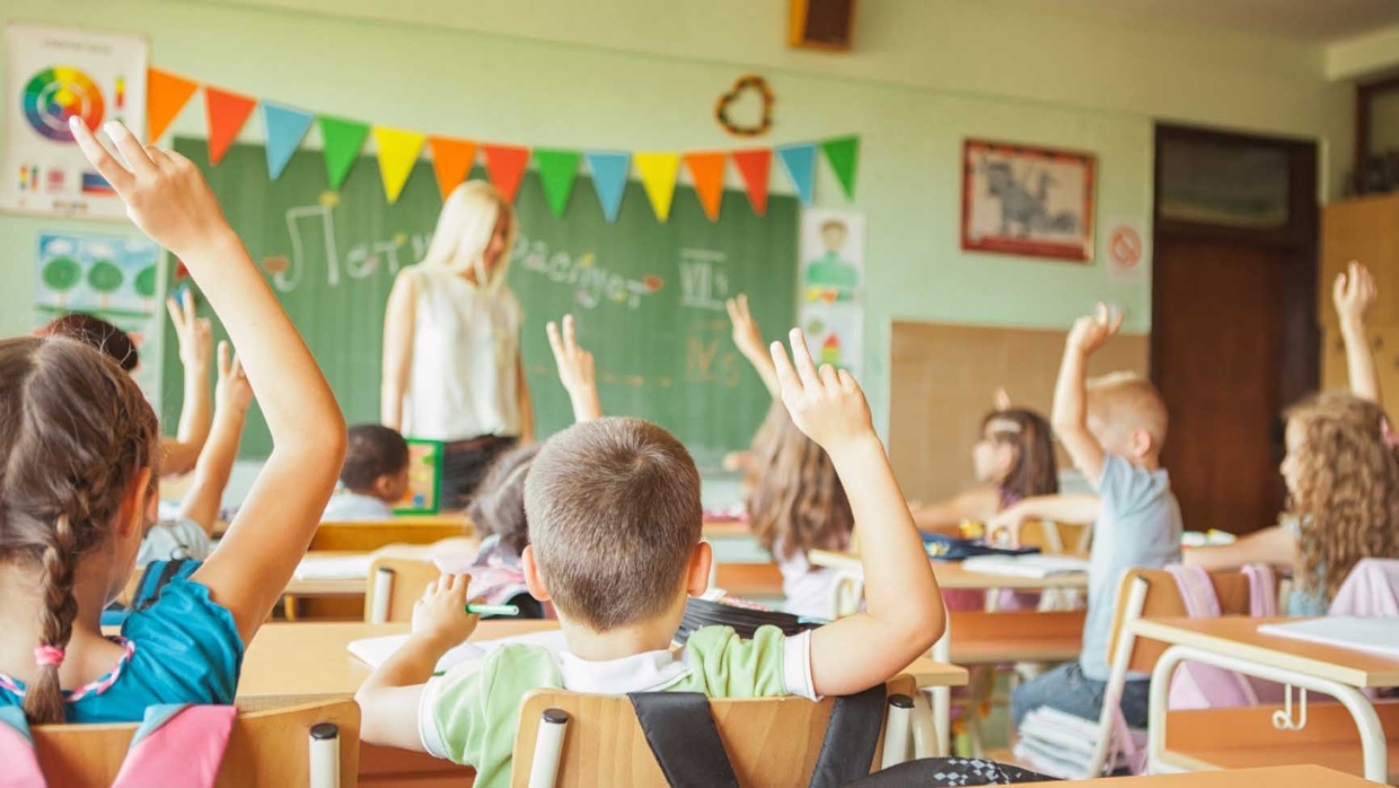Get Top Results with Primary Science Tuition Singapore from Experienced Tutors
Get Top Results with Primary Science Tuition Singapore from Experienced Tutors
Blog Article
Exploring the Various Training Methods in Main Scientific Research Education Today
The landscape of primary scientific research education is developing, with numerous teaching methods getting importance in modern class. Inquiry-based learning, hands-on experiments, and the combination of modern technology are redefining how teachers engage young minds. In addition, collaborative techniques and set apart instruction are being employed to satisfy the varied demands of students, enhancing both engagement and understanding. As we take a look at these techniques, inquiries arise regarding their performance and the ramifications for future academic methods. What might these changes in method mean for the next generation of students?
Inquiry-Based Discovering
Inquiry-Based Discovering (IBL) is a pedagogical method that encourages students to discover clinical ideas with questioning, investigation, and hands-on trial and error. This approach highlights the function of students as energetic individuals in their knowing, advertising critical reasoning and analytic skills. By involving with real-world inquiries, students come to be determined and curious, which improves their understanding of scientific concepts.
In IBL, instructors function as facilitators, leading pupils as they browse their inquiries as opposed to providing information straight. This student-centered method enables for distinction, accommodating numerous learning designs and paces. Students establish skills in formulating theories, creating experiments, and evaluating information, which are critical for scientific literacy.
Furthermore, IBL fosters partnership among pupils, motivating them to share searchings for and ideas. This cumulative inquiry advertises social skills and a feeling of area within the class. Additionally, the procedure of inquiry motivates strength, as trainees find out to embrace failure as a tipping rock towards understanding.
Hands-On Experiments
Hands-on experiments are an important part of effective science education and learning, complementing the concepts of inquiry-based learning. These experiments allow pupils to involve directly with scientific principles, promoting a much deeper understanding via experiential understanding. By adjusting materials and observing results, young students can grasp abstract theories in substantial ways.
Such activities promote critical thinking and analytical skills, as pupils assume end results, conduct experiments, and analyze outcomes. This procedure encourages them to ask questions, refine their understanding, and develop a scientific frame of mind. Hands-on experiments can be tailored to diverse learning styles, ensuring that all pupils have the possibility to engage meaningfully with the content.
Moreover, hands-on experiments often encourage cooperation among peers, advertising synergy and communication skills. Working in groups enables students to share concepts, go over findings, and pick up from one another, which enhances their total academic experience.
Including hands-on experiments right into the main science educational program not just enhances the discovering environment but additionally cultivates a lifelong interest in scientific research. By proactively joining their education, pupils are extra likely to create an enthusiasm for scientific inquiry that expands past the classroom.

Modern Technology Integration
Integrating innovation right into primary science education has actually ended up being significantly important in cultivating pupil involvement and enhancing learning outcomes. The usage of digital devices, such as interactive simulations, digital laboratories, and educational software, provides pupils with possibilities to explore scientific concepts in innovative ways. These resources promote a much deeper understanding of complicated topics by enabling learners to imagine and manipulate variables that would be not practical in a traditional class setup.
Furthermore, innovation combination motivates individualized finding out check here experiences. Pupils can advance at their own pace, taking another look at challenging ideas via multimedia sources, which accommodate various understanding designs. This versatility not only supports specific growth but likewise grows a feeling of autonomy in students.
Furthermore, modern technology works as a bridge to real-world science, connecting pupils with present research study and expert payments. Access to online data sources and scientific journals widens students' viewpoints on clinical inquiry and cultivates essential believing skills.
Collaborative Understanding
Joint knowing plays an essential function in key science education by fostering synergy and communication abilities amongst students. This technique encourages students to interact, share knowledge, and involve in analytic, which enhances their understanding of clinical ideas. By joining group activities, pupils discover to express their concepts, listen to diverse perspectives, and bargain services, every one of which are essential abilities in both academic and real-world contexts.

Research suggests that joint understanding can result in raised motivation and interaction in scientific research topics, as pupils find pleasure in common experiences (primary science tuition Singapore). Additionally, this method prepares pupils for future collective endeavors, equipping them with the skills needed for reliable teamwork in higher education and learning and specialist settings. Ultimately, embracing collective knowing in main scientific research education and learning can considerably enhance the understanding Our site experience and advertise a deeper understanding of scientific inquiry
Set Apart Guideline

Distinguished guideline can manifest in different means, such as varying the material, processes, or items of knowing. For circumstances, educators may make use of tiered assignments that supply differing levels of complexity, enabling pupils to operate at their corresponding readiness levels. Furthermore, versatile organizing approaches can facilitate collaboration amongst students with different abilities, promoting peer discovering.
Analysis plays a vital function in this strategy, as it educates guideline and helps educators comprehend each student's distinct needs. Formative assessments, such as quizzes and monitorings, can lead educators in readjusting their methods to enhance learning end results. primary science tuition Singapore. Inevitably, by implementing differentiated direction in main science education, educators can cultivate a much more effective and fair discovering environment, empowering all students to reach their complete possibility in recognizing clinical phenomena
Verdict
In recap, more the diverse teaching approaches in key scientific research education and learning, consisting of inquiry-based discovering, hands-on experiments, innovation integration, collaborative understanding, and set apart guideline, jointly add to a more reliable knowing environment. These approaches advertise important reasoning, analytical abilities, and a deeper understanding of clinical ideas. By implementing these approaches, teachers can create appealing and supportive class that attend to the varied requirements of students, ultimately promoting a long-lasting rate of interest in scientific research and enhancing scholastic achievement.
Inquiry-Based Learning (IBL) is an instructional approach that motivates pupils to explore clinical principles via doubting, examination, and hands-on testing.Joint learning plays an important duty in main scientific research education by promoting synergy and communication skills amongst students.Research study shows that collaborative knowing can lead to boosted inspiration and interaction in scientific research subjects, as students discover pleasure in common experiences.In cultivating an inclusive discovering setting, distinguished direction arises as a vital strategy to fit the varied demands and capabilities of pupils in key scientific research education and learning. Inevitably, by applying differentiated instruction in primary science education and learning, instructors can cultivate a more equitable and effective understanding environment, empowering all students to reach their complete possibility in recognizing clinical phenomena.
Report this page